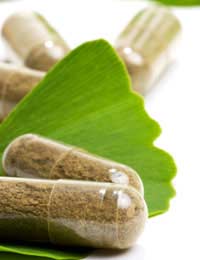Natural Remedies and ADHD

ADHD is estimated to affect some 5-7% of the worlds children, and the Western World relies almost solely on the use of pharmaceutical medications, diet and behavioural modification to treat ADHD symptoms.
However, it is worth remembering that other populations in the world rely on a completely alternative way of managing health, that is as old as mankind itself. Herbal medicine has evolved with mankind over millennia. In China, traditional Chinese herbal medicine is still the mainstay of health treatment. Treatment success rates frequently mirror or exceed those achieved in the West. This article takes a look at Chinese herbal approaches to managing ADHD symptoms.
Principles of Chinese Herbal Medicine
In traditional Chinese medicine, herbal formulas are used along with diet in a combination approach to balance the systems of the body. All aspects of ill health are considered to arise from a lack of balance in a particular body system, and medicines are prepared for the individual based on the symptoms that they show. This systematic herbal approach lends itself to treating ADHD or ADD. In herbal medicine, concoctions are usually prepared on an individual basis for the patient.In defence of traditional herbal medicine in China, more and more 'standard' tinctures are being tested in clinical trials, and many are producing interesting results.
The fundamental difference in Eastern and Western clinical trials is that in the West, trials must have placebo controls (where no real drug is given). Additionally, they have to be randomised so that even the researchers do not know which study patient is receiving the real drug or placebo until the end of the trial. Chinese herbal medicine does not generally lend itself to this sort of evaluation, and Western medicine does not generally accept the findings of Chinese evaluation studies. However, theses studies, however imperfect do show consistent benefits and should not be dismissed out of hand.
The following examples are 'standard' treatments for ADHD and hyperactivity.
Tiaoshen Liquor
Tiaoshen Liquor is a particular blend of Chinese herbs, designed to help control hyperactivity. Tiaoshen Liquor has been subjected to a Chinese clinical trial, and was given to 100 children with known hyperactivity symptoms of ADHD. After treatment, 94% of the children showed marked improvements in their hyperactive behaviour, and their attention span was greatly improved along with improvements in academic achievement. When Chinese scientists investigated further in animal trials, they found evidence that this medicine might work because it improved information transfer across what are termed 'cholinergic synapses'.Yizhi (Wit Increasing) Syrup
Use of this syrup in 66 hyperkinetic children resulted in significant improvements in behaviour scores, academic achievements and other symptoms associated with ADHD. After treatment, the researchers noted that there was a significant elevation in brain chemicals and neurotransmitters in the urine: norepinephrine, dopamine, 3-4 dihydroxy phenylacetic acid, cyclic adenosine monophosphate, and creatinine.Comparing Ritalin with a Chinese Herbal Approach
In a rare direct comparison of a Chinese herbal approach and Western medicine, 80 children were given Chinese therapy which was based on subduing hyperactivity of the liver and invigorating the function of the spleen. Herbs used included Scutellaria baicalensis, Bupleurum Chinese,Codonopsis pilosula, Astragalus membranaceus, Lophatherum gracile, Ligustrum lucidum, and what the Chinese term 'thread of ivory'. 20 children were given Ritalin at between 5-15 mg twice a day.A single course of treatment lasted one month, and the effects of treatment were evaluated after 1-3 courses had been completed.
The researchers considered measures of brain activity through an EEG, IQ, and the recurrence of symptoms. In the traditional Chinese herbal medicine group, 23 cases out of 80 gained a full 10 points in IQ and achieved a normal EEG, with no recurrence in symptoms for six months. 46 cases were significantly improved on all measures, and in 11 cases there was no effect of treatment.
Using the same measures, the Ritalin group produced 6 children who were 'cured', 12 showed improvements in symptoms and 2 showed no improvements. In other words, there was little overall difference between the two treatment approaches.


Re: Inside the ADHD Brain
This was really helpful! Recommend reading.
Re: Distinguishing Between ADHD and the Bright Child
A person with ADHD can show hyper focus on something that interests them, when they are in their "flow",…
Re: Conquering ADHD
I was told by my daughter Peditrishion that I could get help with my 9 year old daughter's behaviour she was referring me to somboadys else on…
Re: Why Do Some Teenagers With ADHD Self Harm?
I was born with ADHD and Iam now 17 year old adolescent.I suffer still with that problem and I am vulnerable to…
Re: Is ADHD Hereditary?
Dear coach4learn: The views you seem to be projecting are a blatant disregard towards the obvious truth regarding attention…
Re: ADHD in Adults
Stumbled upon this. Not really computer literate. You are describing me. What I hate most is my wife continually shouting at me that I "just don't…
Re: ADHD and Dyslexia
Jackie - Your Question:My son has is 8 years old now and can hardly read. He does not read. It seems as if he is struggling to get the alphabet…
Re: ADHD and Dyslexia
My son has is 8 years old now and can hardly read. He does not read. It seems as if he is struggling to get the alphabet in "his head". His…
Re: ADHD in Adults
My son has had problems since he was born but never diagnosed he has been in lots of trouble with the authorities and broken relationships. He self…
Re: The Difference Between Bad Behaviour and ADHD
i have 13yr old son, he has been diagnosed adhd since age 7yr. old until now we keep on visiting his doctor.…